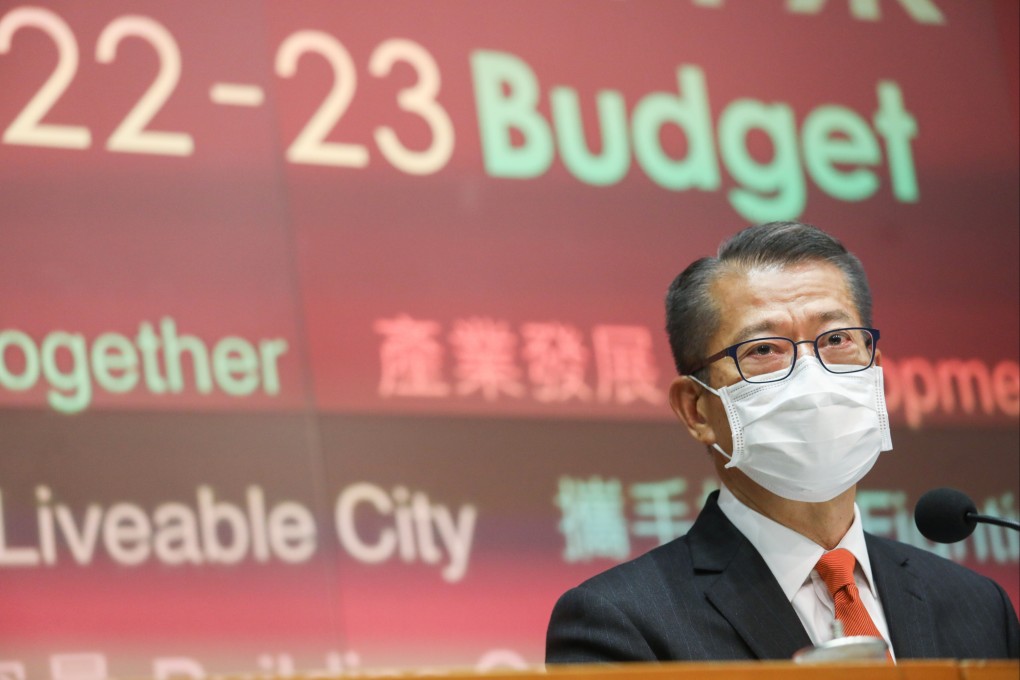Editorial | Budget puts city on stronger footing at time of health crisis
- Hong Kong’s finance minister has sought to address the hardship of those worst hit by the latest coronavirus wave without losing sight of the need to prepare for post-pandemic recovery

Despite no fewer than six relief packages since 2020, Chan went further than tax concessions and fee waivers to offer wide support, including HK$10,000 electronic consumption vouchers, compared with HK$5,000 handouts previously, costing HK$66.4 billion and a HK$100,000 tax deduction for those who pay rent. A moratorium for specified sectors will also be introduced to stop landlords from ejecting tenants who fail to pay rent on time. But, welcome as they are, the initiatives may still fall short of the expectations of many.
Understandably, the fight against the pandemic has received an extra HK$54 billion. This includes HK$22 billion for boosting tests and supporting the Hospital Authority, HK$12 billion for building new facilities, HK$6 billion for vaccine procurement and HK$7 billion for additional necessary services. Hopefully, the outgoing and incoming governments will still have more cash ammunition.
The city is fortunate to have a deep war chest. This is especially important because the fifth coronavirus wave is still showing no sign of receding. While the city’s financial reserves once hit a record HK$1.17 trillion in 2018-19, it is estimated they have now shrunk to HK$940 billion, similar to the level when the current administration took office five years ago. The budget deficit is expected to exceed HK$56 billion in the next financial year, and it remains to be seen whether Chan will once again be proved wrong in his forecast. But uncertainties ahead call for extra vigilance and fiscal prudence.
That explains a series of tax reforms in the pipeline, including a progressive levy on properties and global minimum tax rate for international businesses to help raise revenues. The continuous investment in innovation and technology should also give the city an extra edge for stronger economic growth.
Chan said this year’s 25th anniversary of reunification marked a new chapter. But while he said “within the China dream lies a Hong Kong dream” and expressed hopes for fostering a caring and inclusive society, he also acknowledged the problems of economic imbalance and inadequate opportunities for young people.
Whether the latest virus outbreak may soon be controlled remains to be seen, but now is the time to curb its spread and help those in need. The budget has put the city on a stronger footing to soldier on.
